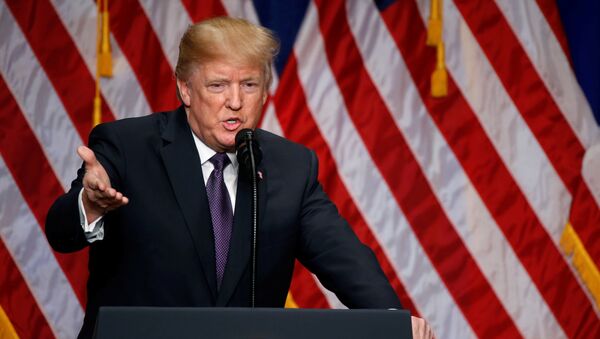Presiding Judge George Daniels tossed the case out on the grounds that it lacked standing and that it did not fall in line with the interests of the Emoluments Clause. Instead, the judge stated the dispute should be resolved through the "political process."
But the ruling has not convinced CREW to pack up. The group plans to continue to fight the ruling.
"While today's ruling is a setback, we will not walk away from this serious and ongoing constitutional violation," CREW said in a statement. "The Constitution is explicit on these issues, and the president is clearly in violation."
POTUS has previously stated that his businesses will be put into a blind trust and managed by Donald Trump Jr. and Eric Trump.
Trump critics have kept a watchful eye on 45's businesses as they speculate officials can easily make business deals with Trump in exchange for the president's favor. Among the critics is Walter M. Shaub Jr., who from January 2013 to July 2017 served as the director of the US Office of Government Ethics.
On January 11, just over a week prior to Trump's swearing in, Shaub issued a statement criticizing Trump's proposed blind trust as "not even halfway blind."
"His own attorney said today that [Trump] can't 'un-know' that he owns Trump Tower," Shaub stated. "The same is true of his other holdings. The idea of limiting direct communication about the business is wholly inadequate. That's not how a blind trust works. There's not supposed to be any information at all."
Despite Shaub's critiques, Tim Cooper, a global economist at BMI research, says it's unlikely that Trump will ever actually divest from his businesses to the level that would satisfy critics.



